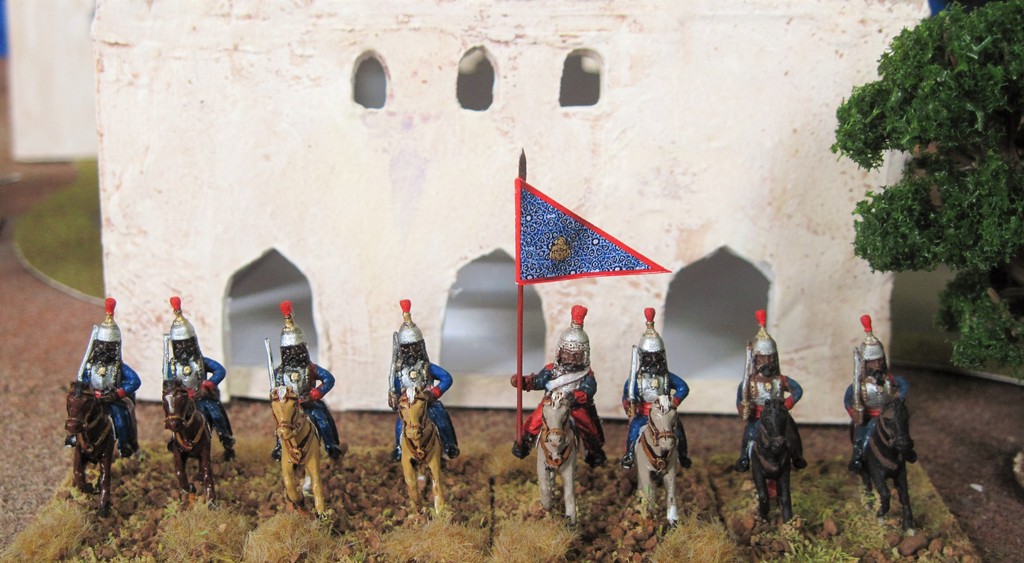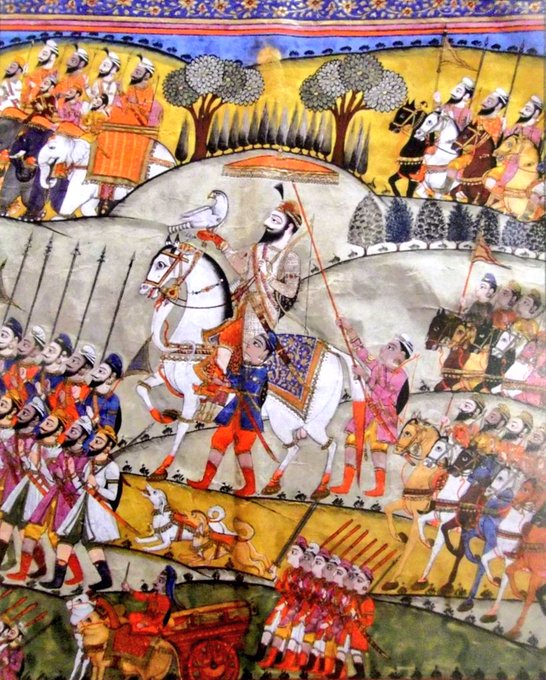Discover the diverse dialects of the Punjabi language spoken across India and Pakistan, from Eastern Punjabi in Majha to Western Lahndi in Multan.
Discover the intense Sikh-Muslim conflict in Punjab over the sacred Gurdwara Shahidganj site in Lahore from 1935 to 1940. Learn about its historic significance.
Discover the legacy of Ram Singh, a Khalsa warrior, and Punjabi hero, who fought valiantly with Banda Singh Bahadur. Explore his battles and sacrifice.
ADVENTURES OF AN OFFICER IN THE PUNJAB (2 vols.) by Major H. M. L. Lawrence, under the pseudonym of Bellasis, published in AD 1846 by Henry Colburn, London, and reprinted in 1970 by the Languages Department, Punjab, Patiala. The book which is a rambling account, half fact half fiction, of the author`s adventures, provides information about the rise of the Sikhs and about the person and government of Maharaja Ranjit Singh. This is "a dose of history, which the reader may read or not, as he pleases" (p. 236), mixed with scandal and bazaar gossip.
Explore the legacy of Amar Singh Majithia, a celebrated military commander under Maharaja Ranjit Singh who distinguished himself in pivotal Sikh campaigns.
Explore the Auckland Papers for insights on 19th-century politics, the Sikh military, and the Anglo Afghan war, now accessible in London.
BHAG SINGH, also referred to in government records as Baj Singh, was an associate of Bhai Maharaj Singh, leader of the anti British revolt in the Punjab in 1848-49. Originally a disciple of Bhai Bir Singh of Naurangabad, he survived the attack on his dera on 7 May 1844 and went on a pilgrimage to Nanded. On his return to the Punjab, he joined Bhai Maharaj Singh at Amritsar shortly before the latter went underground in June 1847 to escape arrest by the British in connection with the Prema conspiracy case. Bhag Singh escaped towards Kangra and rejoined Bhai Maharaj Singh before the beginning of the second AngloSikh war in 1848. After the battle of Chelianvala he made a trip to Peshawar, rejoining his leader at Dev Batala, in the Jammu area.
BROWN, JOHN, alias RICHARD POTTER, an Englishman, who, deserting the East Indian Company`s service in the Bengal artillery, came to Lahore and joined the Sikh artillery in 1826. He was later promoted colonel and placed in charge of the artillery depot at Lahore. During the first Anglo Sikh war, he acted as a British spy. Just before the battle of `Aliwal, he went to Ludhiana and offered his services to his countrymen.
DAL KHALSA is the term used to describe the militia which came into being during the turbulent period of the second half of the eighteenth century and which became a formidable fighting force of the Sikhs in the northwestern part of India. The first Khalsa army formed and led by the creator of the Khalsa, Guru Gobind Singh (1666-1708), had broken up at the time of the evacuation of Anandpur in December 1705. Another force, at one time 40,000 strong, raised by Banda Singh Bahadur (1670-1716) was scattered after the caputre and execution of its leader.







